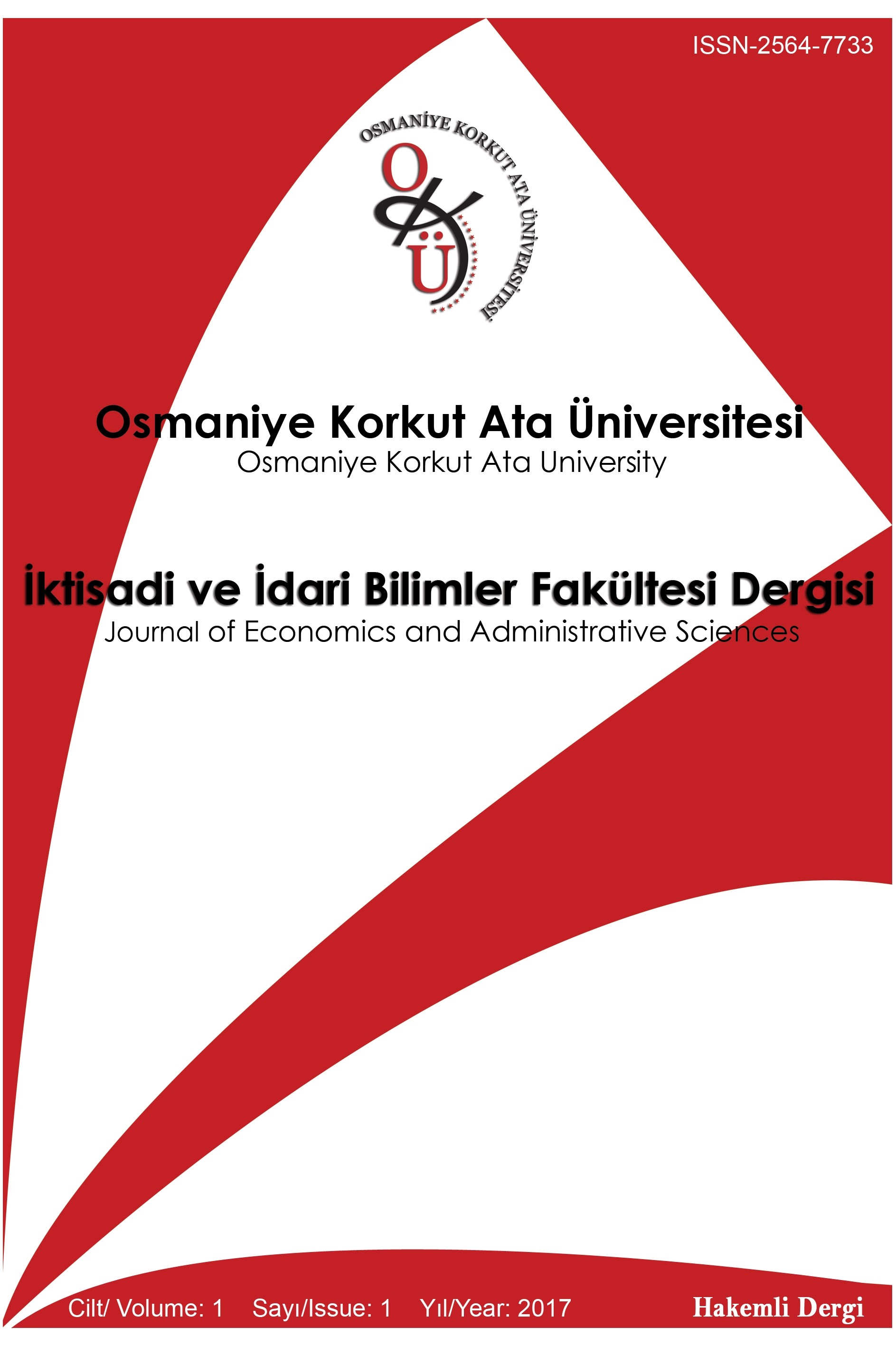KURUM KÜLTÜRÜNÜN ÇALIŞAN MOTİVASYONU ÜZERİNE ETKİSİ: ANKARA’DAKİ 5 YILDIZLI OTELLER ÜZERİNDE UYGULAMA
İşletmelerin kendilerine has davranış, inanç ve alışkanlıkları olarak ifade edildiği kurum kültürünün, personelin performansında etkili faktörlerinin motivasyona etkisinin araştırılan bu çalışmada turizm kurumlarından otellerden yararlanılmıştır. Ankara’da bulunan 15 adet 5 yıldız kategorisinde yer alan otellerdeki personel ile yüz yüze anketlerle yapılmıştır.200 adet anket dağıtılmış ancak bunlardan eksik ve yanlış doldurulanlar 10 adedinin dahil edilememesi ile toplamda 190 anketle analiz gerçekleştirilebilmiştir. Kurum kültürünü ölçümünde Denison 4 faktörlü kurum kültürü ölçeği ile işgörenlerin motivasyon seviyelerinin ölçülmesi için Hezberg’in Çift Faktör Kuramının motive edici ve hijyen faktörleri ele alınmak suretiyle De Beer tarafından geliştirilmiş olan motivasyonun 9 boyutlu ölçeğinden oluşan anket kullanılmıştır. Sonuçlar frekans analizi tek yönlü varyans (One-way ANOVA), bağımsız t-testi, korelasyon ve regresyon analizleri SPSS 24 istatistik programıyla analiz yapılmıştır. Sonuç olarak kurum kültürünün çalışan motivasyonu üzerinde pozitif ve anlamlı ilişki bulunmuştur. Bulunan anlamlı ilişkiye bağlantılı araştırma sonucunda işletmelerde kurum kültürünün çalışan motivasyonunun arttırılmasında yöneticilerinde öncü olmasıyla çalışmaların yapılabileceği durumu oluşturmuştur.
Anahtar Kelimeler:
Örgüt Kültürü, Çalışan Motivasyonu, Denison ölçeyi
Effect Of Corporate Culture On Employee Motıvatıon: Applıcatıon On 5 Star Hotels In Ankara
In this study, which investigates the effects of corporate culture, which is expressed as unique behaviors, beliefs and habits of businesses, on the motivation of personnel performance, tourism institutions and hotels were used. Face-to-face questionnaires were carried out with the staff in 15 hotels in the 5 star category in Ankara. 200 questionnaires were distributed, but the analysis could be performed with 190 questionnaires in total, since 10 of them were not included in the missing and incorrectly filled out. In the measurement of corporate culture, the Denison 4-factor corporate culture scale and a questionnaire consisting of 9-dimensional scale of motivation developed by De Beer by considering the motivating and hygiene factors of Hezberg's Double Factor Theory was used to measure the motivation levels of employees. The results were analyzed by frequency analysis one-way variance (One-way ANOVA), independent t-test, correlation and regression analysis with SPSS 24 statistical program. As a result, a positive and significant relationship was found between corporate culture and employee motivation. As a result of the research related to the significant relationship found, it has created a situation where studies can be carried out with the corporate culture being a pioneer in increasing employee motivation in enterprises.
Keywords:
Organizational Culture, Motivation, Denison Scale,
___
- Alayoğlu, N. ve Doğan, E. A. Örgüt Kültürünün Çalışan Motivasyonuna Etkileri: Belediyecilik Sektöründe Bir Uygulama. İstanbul Ticaret Üniversitesi, Dış Ticaret Enstitüsü, Tartışma Metinleri, İstanbul,2015, s.11
- Awad A.M., Saad, A. M. (2013). Impact of Organizational Culture on Employee Performance. International Review of Management and Business Research, 2, s. 168
- Ball, Dr. J., Understanding Herzberg’s Motivation Theory. Retrieved 20 February 2003, s.58-59.
- Başaran İ.E., Örgütsel Davranış. Ankara Üniversitesi E.B.F. Ankara,1982, s.25-31-69
- Bozkurt T., İşletme Kültürü. Endüstri ve Örgüt Psikolojisi ve Türk Psikologlar Derneği,1996, s.82
- Brooks I., Organizational Behavior: Individuals, Groups and Organization. Essex: Pearson Education Limited,2006, s.11
- Cooke R A., Organizational culture inventory, leader's guide. 2nd Edition. Plymouth, MI: Human Synergistics,1989, s.112 Deci Edward L. 1997, On the Nature and Functions of Motivation Theories, SAGE Journals,Vol.3,Issue 3,1997,s.167
- Deci, E.L, Koestner, R., Ryan, R.M, Cameron, J. ,Extrinsic rewards and intrinsic motivation in education: Reconsidered once again: Comment/Reply. Review of Educational Research, 71(1),2001, s.51.
- ISSN: 2564-7733
- Yayın Aralığı: Yılda 2 Sayı
- Başlangıç: 2017
- Yayıncı: Osmaniye Korkut Ata Üniversitesi
Sayıdaki Diğer Makaleler
Kadir Caner DOĞAN, Hakan İNANKUL
OTEL ÇALIŞANLARININ İŞ DOYUM DÜZEYLERİNİN İNCELENMESİ: ADANA VE ÇEVRE İLLER ÖRNEĞİ
OSMANİYE'DE SİVİL TOPLUM VE YÖNETİŞİM
TÜRKİYE’DE İHRACAT İLE EKONOMİK BÜYÜME ARASINDAKİ DOĞRUSAL OLMAYAN NEDENSEL İLİŞKİNİN ANALİZİ
X VE Y KUŞAĞI BEYAZ YAKALI ÇALIŞANLARIN KARİYER TATMİNLERİNİN KARŞILAŞTIRILMASI
İbrahim RENÇBER, Didem PAŞAOĞLU BAŞ
